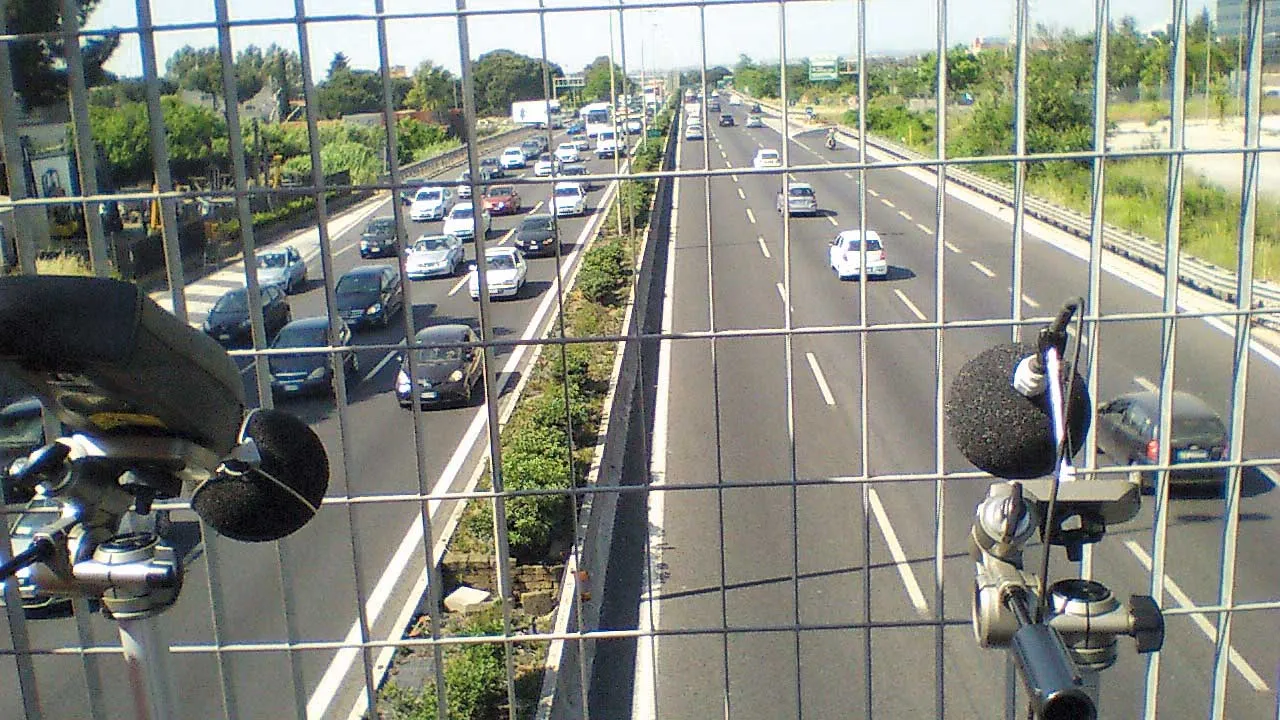The RIDERSCAN project is now launching its third and last survey targeting European motorcyclists. Focusing on new technologies and powered two wheelers, the survey will feed the RIDERSCAN report on Traffic Management, providing an opportunity for European riders to express their views on coming intelligent transport technologies.
Efficient transportation has become critical for Europe to remain competitive globally. Technological development is often intended to provide people with more freedom and the ti
January 20, 2014
Read time: 3 mins
The RIDERSCAN project is now launching its third and last survey targeting European motorcyclists. Focusing on new technologies and powered two wheelers, the survey will feed the RIDERSCAN report on Traffic Management, providing an opportunity for European riders to express their views on coming intelligent transport technologies.
Efficient transportation has become critical for Europe to remain competitive globally. Technological development is often intended to provide people with more freedom and the time to perform other activities in a better way and is seen by all major stakeholders as an essential component of tomorrow's transport system.
Motorcycling is about freedom and powered two wheeler (PTW) users are regular market consumers using new technology to gain time and freedom, to improve their riding experience or to increase their safety. However, the riding activity, particularly complex, differs greatly from the driving and has, up to now been poorly studied. As a result, most of discussed technologies are coming from the car industry, designed with little understanding of the riding constraints, and have led to poor acceptance by the riders. Moreover, motorcycle accident causation and risk factors are not fully known and the current state-of-the art of ITS for transport has not undergone any impact assessment with regard to positive or negative consequences for motorcycling. More specifically, no research has been done taking into consideration the variety of riding models and the specificities of the riding tasks. As a result, motorcycling needs to be better understood and integrated into ITS innovation and deployment today to guarantee that motorcyclists can also benefit from technological improvement.
The RIDERSCAN project is launching a new survey on ITS and motorcycling safety to tackle this information shortfall. The ITS - Intelligent Transport Systems - User Survey is the third and last survey launched in the context of the project and will feed the report on Traffic Management and new technologies.
The survey is asking riders to evaluate their willingness to test, use, and buy systems that are still in development. The aim is to draw a European map of rider awareness and acceptance of new technologies applied to the transport systems.
The survey is divided in two sections, with the first asking question about mobility habits to gather information about experience and road habits in general. The second asks about ITS applications/systems for PTW safety, allowing those responding to provide an opinion on applications discussed among ITS experts.
RIDERSCAN aims at bridging the gap between road safety authorities, researchers, and industry stakeholders by setting up a detailed survey over ITS systems in relation with motorcycling and riding activities. Its objective is to collect the views of those first impacted by the development of new technologies on bikes.
The survey will last for three months and preliminary results will be presented at the next European Motorcyclists Forum on March 5th, 2014 in the European Parliament, Brussels.
Efficient transportation has become critical for Europe to remain competitive globally. Technological development is often intended to provide people with more freedom and the time to perform other activities in a better way and is seen by all major stakeholders as an essential component of tomorrow's transport system.
Motorcycling is about freedom and powered two wheeler (PTW) users are regular market consumers using new technology to gain time and freedom, to improve their riding experience or to increase their safety. However, the riding activity, particularly complex, differs greatly from the driving and has, up to now been poorly studied. As a result, most of discussed technologies are coming from the car industry, designed with little understanding of the riding constraints, and have led to poor acceptance by the riders. Moreover, motorcycle accident causation and risk factors are not fully known and the current state-of-the art of ITS for transport has not undergone any impact assessment with regard to positive or negative consequences for motorcycling. More specifically, no research has been done taking into consideration the variety of riding models and the specificities of the riding tasks. As a result, motorcycling needs to be better understood and integrated into ITS innovation and deployment today to guarantee that motorcyclists can also benefit from technological improvement.
The RIDERSCAN project is launching a new survey on ITS and motorcycling safety to tackle this information shortfall. The ITS - Intelligent Transport Systems - User Survey is the third and last survey launched in the context of the project and will feed the report on Traffic Management and new technologies.
The survey is asking riders to evaluate their willingness to test, use, and buy systems that are still in development. The aim is to draw a European map of rider awareness and acceptance of new technologies applied to the transport systems.
The survey is divided in two sections, with the first asking question about mobility habits to gather information about experience and road habits in general. The second asks about ITS applications/systems for PTW safety, allowing those responding to provide an opinion on applications discussed among ITS experts.
RIDERSCAN aims at bridging the gap between road safety authorities, researchers, and industry stakeholders by setting up a detailed survey over ITS systems in relation with motorcycling and riding activities. Its objective is to collect the views of those first impacted by the development of new technologies on bikes.
The survey will last for three months and preliminary results will be presented at the next European Motorcyclists Forum on March 5th, 2014 in the European Parliament, Brussels.







